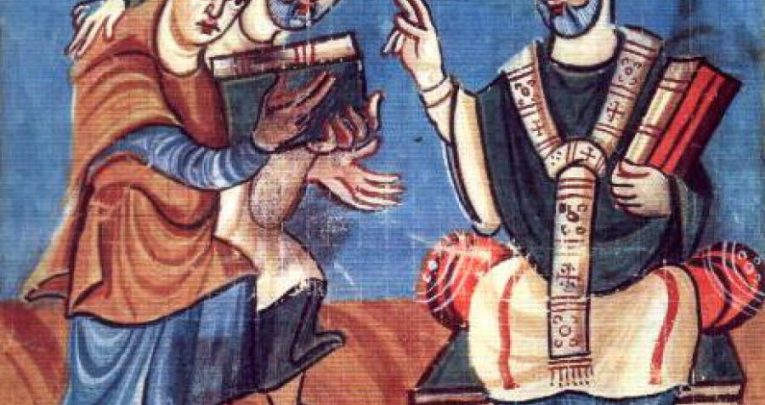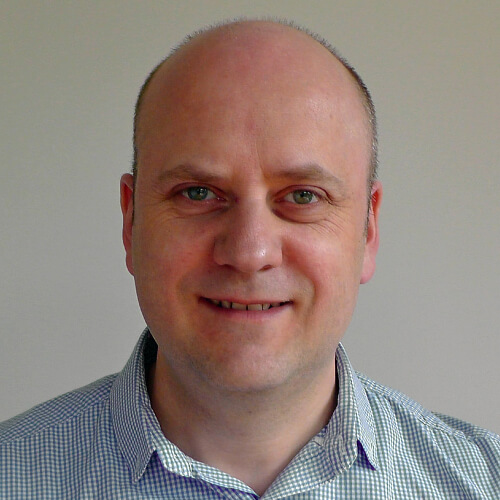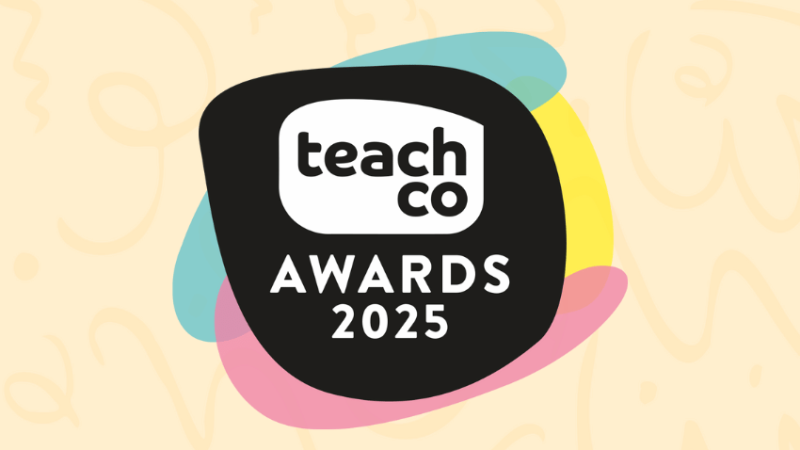Why an 8th-Century Scholar is Still the Most Important Person in the History of English Education

Harley Richardson makes the claim that the original proto-Renaissance man, Alcuin of York, is the number one influence on our schools today

‘Who has made the most important impact on education?’ This is the very question being put to education big hitters such as Dr Joanna Williams, Tom Bennett and Martin Robinson at the Institute of Ideas Education Forum’s very first Xmas social event.
If you want to hear them fight it out, entry is free – just turn up to the CIEE Global Institute in London (46-47 Russell Square, London WC1B 4JP), bring a bottle and be prepared to say who you think is the most important person in education.
To help get things warmed up, this week on Teachwire, members of the Education Forum committee will say who they think deserves the accolade. Today Harley Richardson pays tribute to the person he believes has had the biggest impact on English education.
Why do I think a little known 8th-century scholar has made the biggest impact on English education? Simple: he revolutionised the purpose and practice of education, both in England and abroad, and he laid the foundations for the best aspects of the education system we have today.
Alcuin of York (c735-804AD) was “the most learned man of his generation”, a Renaissance Man before the concept existed, who crops up as a supporting character in many medieval histories. His greatest legacy however is the Seven Liberal Arts, introduced while he was master of York Cathedral School.
“Liberal” here means “free” – the education of a free person. The liberal arts were distinct from the mechanical arts, or crafts as we would know them now. These involved training someone in a specific useful skill, such as agriculture, bakery, butchery or navigation, and were considered to be narrow and repetitive.
The liberal arts by contrast were open-ended, and did not lead to a particular end product. They were about creating an educated individual.
The liberal arts had their roots in ancient times – Aristotle (384-322 BC) said they liberate man by enlarging and expanding his choices. They were formalised by the 6th-century philosopher Boethius, but it was Alcuin who would give them an all-important Christian spin.
In a recent Radio 4 programme about Alcuin, Dr Mary Garrison, historian at University of York, explained that, up to this time, medieval grammar schools had been concerned with “salvation and administration”.
Alcuin’s belief in learning for its own sake, according to Garrison, was unparalleled. But in his wake, the focus of schools gradually changed. They began to teach students to use the power of their intellect to understand the world.
The Seven Liberal Arts came in two parts. As anyone who is familiar with the work of Trivium 21c author Martin Robinson will know, the Trivium consisted of Grammar, Rhetoric and Dialectic (or Logic) – in other words, learning something about the world, describing what you’ve learned and then arguing about what it means with others.
Robinson argues that the Trivium still has a lot to offer us today and can form a powerful basis for all learning.
Primed by the Trivium, medieval students could go on to study the Quadrivium at university.
This consisted of Arithmetic, Geometry, Astronomy and Music – effectively the different facets of maths as it was during that time, and the beginnings of what would become science.
The Seven Liberal Arts were devoted to the service of God, but a space had been opened up for human insight and understanding.
Word of Alcuin’s work spread. Soon he was headhunted to become the education advisor for another lover of learning, Charlemagne, the first Holy Roman Emperor.
Trending
In Alcuin’s new role, he would export the Seven Liberal Arts back to the continent: an early example of international cross-fertilisation of educational ideas.
He also deserves praise for promoting the use of the Carolingian minuscule script, which was easier to read than the dense and ornate scripts that had dominated up to that time.
It introduced features of writing which we take for granted today – upper and lower case letters, spaces between words, and increased use of punctuation such as question marks. This innovation came about for a religious purpose – to ensure proper understanding of scripture – but would have much broader benefits.
Carolingian minuscule is rightly known as a prototypical ‘humanist’ script – because it made writing more accessible to ordinary humans. And that makes Alcuin an early humanist, who tried to remove the barriers to learning that he saw.
After Alcuin’s death, the Seven Liberal Arts became the standard curriculum in schools in England and stayed that way for hundreds of years. They would enjoy their golden age during the Tudor era, when they were given additional impetus by the fully fledged humanist ideas of the Renaissance.
The rediscovered classics of Ancient Greece and Rome provided rich source material through which to grapple with the big questions about life. We see evidence of the breadth of knowledge and ideas that grammar school children were exposed to in every line of William Shakespeare’s plays.
Soon however, for reasons that are somewhat obscure, the liberal arts lost their way, becoming an empty caricature that would be taught mechanically at grammar schools to an ever-dwindling number of students.
It took several hundred years for liberal education to be resuscitated, this time animated by the rational and enquiring spirit of the Enlightenment.
This revival took place initially in the public schools of the 19th century but set the bar for the state education system that followed.
The idea of liberal education fell out of favour during the 20th century. And now that everyone is obsessed with league tables, outcomes and training young people for careers, it seems we’re back to the restricted ambitions of the Mechanical Arts.
The Seven Liberal Arts may be a product of their time, but the principle of a liberal education that Alcuin established – the open-ended education of the free person – can still remind us to aspire for something much greater.
Harley Richardson is director of design & development at Discovery Education and a member of the Institute of Ideas Education Forum.
Check back with us tomorrow when Louise Burton makes a stand for the woman who made a stand for all women – Mary Wollstonecraft.











